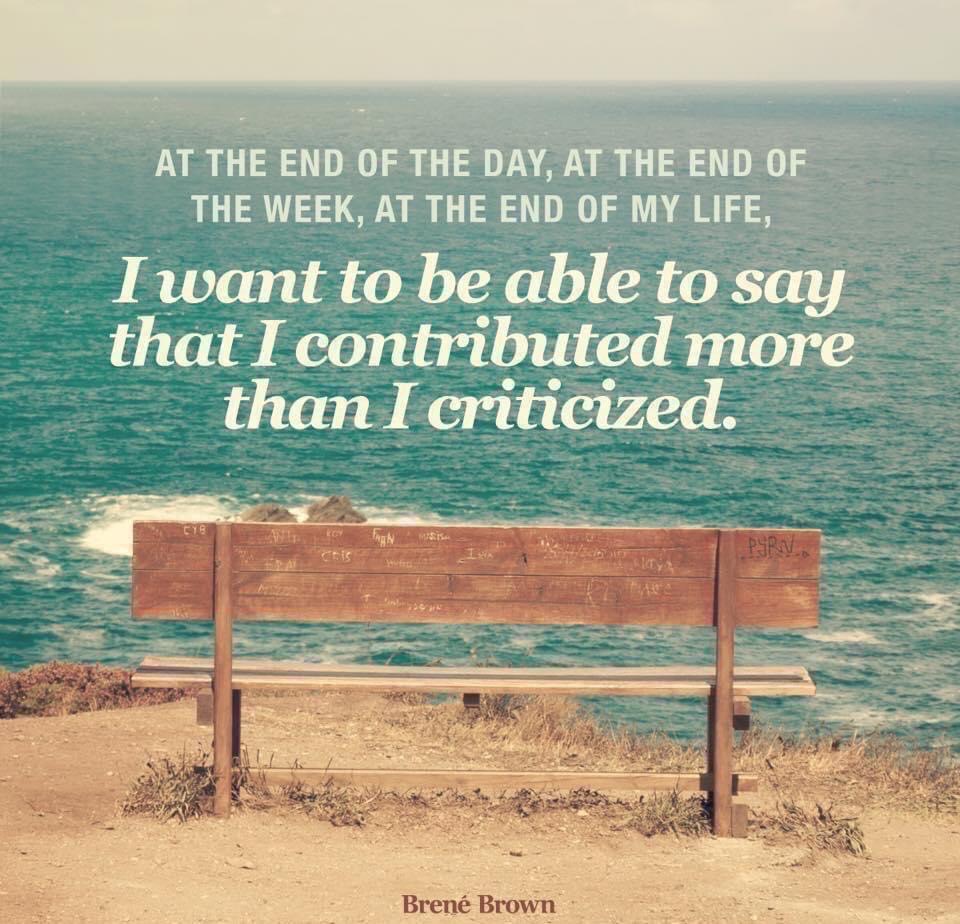In a world where criticism and negativity can easily overshadow positivity, the art of contributing more than criticizing emerges as a powerful force for progress and unity. While constructive criticism has its place in encouraging improvement, the act of contributing goes beyond pointing out flaws to actively offering solutions and support. By embracing this mindset, we cultivate a culture of growth, collaboration, and empowerment.
Criticism, when delivered with good intentions, can be valuable feedback. However, it can often be demotivating and lead to a sense of disempowerment. On the other hand, contributing entails actively participating in conversations and endeavors, seeking ways to add value and uplift others. By taking the initiative to offer ideas, suggestions, and solutions, we create an environment where people feel encouraged and motivated to grow.
Contributing more than criticizing fosters a sense of ownership and responsibility. Instead of merely pointing out problems, we take an active role in finding solutions and implementing positive change. This proactive approach empowers individuals to take charge of their actions and decisions, leading to a greater sense of accomplishment and fulfillment.
In personal relationships, contributing instead of criticizing strengthens bonds and trust. Instead of constantly pointing out flaws, we focus on celebrating each other’s strengths and supporting growth. This creates a nurturing and uplifting environment where individuals can thrive and flourish.
Furthermore, contributing cultivates a sense of gratitude and appreciation. When we acknowledge the efforts and contributions of others, we create a positive cycle of mutual support and recognition. Gratitude fosters a culture of kindness, reinforcing the notion that our actions matter and can make a difference in the lives of others.
The act of contributing more than criticizing is a transformative mindset that empowers individuals and communities to flourish. By actively participating in conversations, offering solutions, and supporting one another, we create an environment of growth, collaboration, and positivity. This mindset enhances communication, fosters gratitude, and strengthens relationships. As we embrace the power of contributing, we become agents of positive change, leaving a lasting impact on the world around us.
There are plenty of inspirational stories on people overcoming criticism. The story of Albert Einstein is one that I truly love.

As a child, Albert Einstein had a great difficulty in speaking and reading due to his dyslexia. His teachers thought he was mentally retarded and anti social. One teacher even told his father, “No matter what he does, he will never amount to anything.” He was forced to take up a job as a clerk in a Swiss Patent office and it seemed the teacher’s prophecy was coming true. But in 1905, while still a clerk, he published a paper called the Special Theory of Relativity. The paper became so famous that by 1908, he was a considered a leading scientist and By 1921, he won the Nobel prize. By the time he died, he became the most famous scientist of all time and his name became synonymous with the word, genius. So, what happened to the critics who said he was mentally retarded and would never amount to anything? Well, nobody knows what happened to them, since nobody bothers to remember them!

